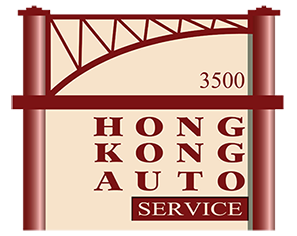Nitrogen isn’t a miracle fix for tire pressure
 Keeping a handle on tire pressure is an important task for every driver on the road.
Keeping a handle on tire pressure is an important task for every driver on the road.
One trend is to fill tires with up with nitrogen, instead of traditional air, which contains 78% nitrogen.
Nitrogen has been used for years in racing tires, commercial and military aircraft tires and heavy-duty equipment tires, so this isn’t a new technology. But in recent years, it has become more available to automotive consumers through a handful of service providers.
These proponents of nitrogen like it because of several reasons:
- All gasses expand when heated and contract when cooled, so tire inflation pressures rise and fall with changes in temperature by about 1 psi for every 10-degree change in temperature. But nitrogen is not as sensitive to temperature extremes like oxygen is, so there aren’t such extreme swings in tire pressure.
- Nitrogen molecules leak from tires much more slowly than oxygen molecules, which also helps prevent underinflated tires, which in turn decreases fuel consumption and prevents premature tire wear.
- Nitrogen helps prevent oxidation of the rim and wheel. Oxygen reacts with tiny amounts of hydrogen in the tires to create water vapor that leaks through sidewalls. That can cause rust to form on the rim.
At Hong Kong Auto Service however, we have chosen not to offer Nitrogen. We believe the benefits are minute, and we see two negatives:
- Even with nitrogen, your car’s Low Tire Pressure warning light may flash during extreme temperature drops. Nitrogen is not fool proof.
- If you have a nitrogen-filled tire that needs air and you top off with regular air, you’ve negated any of the benefits you had gained. (Because so few places have nitrogen equipment, you’ll often find yourself seeking out a regular air pump at a gas station.)
Instead of spending $30-$60 on nitrogen, we recommend a little diligence when it comes to checking your air pressure—once every couple of weeks, more frequently when the seasons are changing.
At Hong Kong Auto Service, we will check and adjust your tire pressure for free anytime, while you wait. Don’t hesitate to stop by!
Consider these stats from the National Highway Safety Traffic Administration:
- Nearly 30 percent of cars, vans, pickups and SUVs on the road have at least one tire that is substantially under-inflated (at least 8 psi below the recommended minimum pressure).
- If you drive with even one tire underinflated by 20 percent, you’ll use about two extra weeks of gas per year and will wear your tire tread six to nine months faster.
- Most drivers can improve gas mileage nearly 3 percent just by keeping tires at the recommended psi.
Hong Kong Auto Service is your go-to source for new tires, mounting and balancing, tire repairs and rotations, and wheel alignments. schedule online now.
